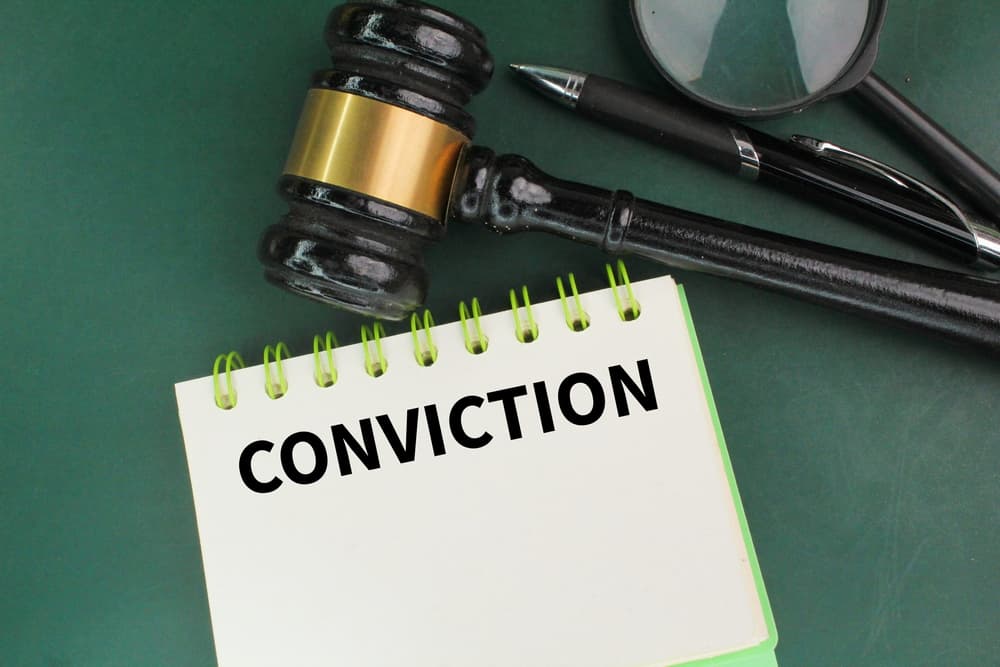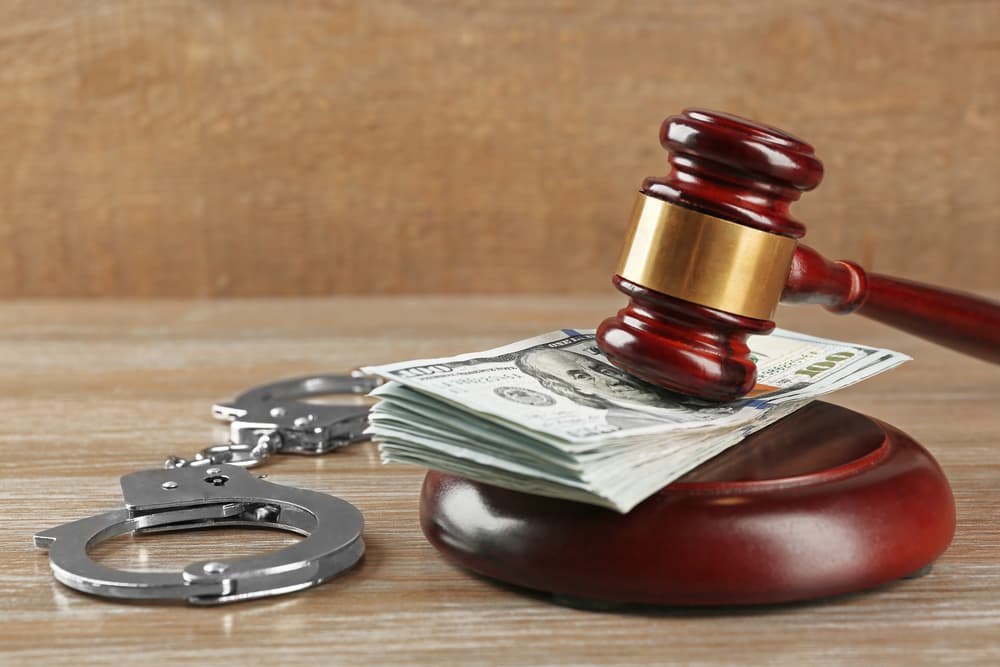A criminal conviction in California can severely affect employment opportunities. This is because many employers conduct background checks and may hesitate to hire someone with a criminal record – especially for jobs requiring trust or responsibility. Convictions can also lead to licensing restrictions in certain professions, like healthcare or law. Additionally, the stigma of a criminal record can make it harder to find a job or advance in a career.
A criminal defense attorney in California can play a vital role in representing you throughout your case. They will work to build a strong defense, potentially reducing charges or penalties. They can also explore options like expungement, which may help eliminate or lessen the long-term employment consequences of a conviction.
Common Criminal Charges in California
In California, there are several criminal charges individuals may face, ranging from driving offenses to violent crimes. Some of the most common charges include DUI, domestic violence, assault and battery, theft, drug crimes, and vehicular manslaughter.
- DUI (Driving Under the Influence): One of the most frequently charged offenses in California is driving under the influence of alcohol or drugs. A DUI occurs when an individual operates a vehicle while impaired, typically by alcohol, prescription drugs, or illegal substances. The state has strict laws regarding blood alcohol content (BAC), and a driver can be arrested if their BAC is at or above the legal limit of 0.08 percent.
- Domestic Violence: Domestic violence refers to abusive behavior between individuals in a domestic relationship, such as spouses, partners, or family members. Charges can include physical violence, threats, or emotional abuse. Domestic violence cases often involve assault, battery, or even stalking and can lead to serious legal consequences.
- Assault and Battery: Assault involves intentionally attempting to harm someone, while battery is the actual physical contact or use of force. In California, assault and battery can range from minor offenses, like pushing someone, to more serious charges, such as hitting or injuring a person with a weapon. These crimes can occur in various settings, such as on the street, in a home, or even at work.
- Theft: Theft is the unlawful taking of someone else’s property. California law covers several types of theft crimes, including petty theft, grand theft, burglary, and shoplifting. Petty theft involves stealing property worth a small amount, while grand theft involves larger sums or more valuable items. Burglary refers to entering a building with the intent to commit theft or another crime inside.
- Drug Crimes: California has a history of strict drug laws, although the state has recently relaxed some regulations with the legalization of recreational marijuana. Despite these changes, drug-related offenses, including possession, distribution, and trafficking of illegal substances, remain common. People caught with drugs may face charges depending on the type and quantity of the drug involved.
- Vehicular Manslaughter: Vehicular manslaughter occurs when a person causes the death of another while driving recklessly or negligently. This charge can be applied when an individual’s driving leads to a fatal accident, even if the death was not intentional. It can occur in cases of impaired driving or other forms of reckless driving behavior.
Collateral Consequences of a Criminal Conviction Related to Employment in California

In California, a criminal conviction can have serious collateral consequences that affect a person’s ability to find and maintain employment. These consequences can extend far beyond the court’s sentence and create long-term barriers to success. Some of the most common employment-related effects include challenges with job applications, background checks, licensing restrictions, and stigma.
- Job Applications and Background Checks: Many employers in California conduct criminal background checks on potential employees, especially for positions that require a high level of trust or responsibility. A criminal record can show up on these checks, making it difficult to get hired. While California law restricts employers from asking about certain types of criminal history, such as arrests that did not lead to a conviction, a conviction itself will likely appear on a background check. In some cases, employers may refuse to hire someone with a criminal history, especially if the offense is related to the job being applied for.
- Licensing Restrictions: Certain jobs in California require state-issued licenses, such as those in healthcare, law, real estate, and teaching. A criminal conviction can complicate or even prevent an individual from obtaining or renewing these licenses. For example, someone convicted of a drug-related offense may find it difficult to get licensed to work in the healthcare field. The California Department of Consumer Affairs and other licensing agencies may deny a license or revoke an existing one based on the nature of the conviction, even if it occurred years ago.
- Stigma and Perceptions: Even after serving their sentence, individuals with criminal convictions often face societal stigma, which can affect their employment prospects. Some employers may be reluctant to hire someone with a criminal record due to concerns about trustworthiness or the potential for reoffending. This bias can lead to feelings of alienation and frustration for those trying to reintegrate into the workforce. Even if an employer does not ask about criminal history directly, the stigma associated with a conviction can still affect how an individual is perceived in the workplace.
- Job Advancement and Career Growth: In addition to difficulties securing a job, a criminal conviction can also limit opportunities for career advancement. Once employed, an individual with a criminal record may face challenges in getting promoted or receiving raises, particularly if their conviction becomes known to their employer or coworkers. Some fields, such as law enforcement, education, and financial services, may have strict policies that limit career growth for those with certain convictions.
Legal Penalties Associated with California Criminal Convictions

In California, criminal convictions can result in various legal penalties that vary depending on the type of crime. These penalties can range from fines to imprisonment and can have serious long-term effects on a person’s life. Here are the most common legal penalties associated with various criminal offenses:
- DUI: A DUI conviction in California can lead to several penalties. First-time offenders may face a license suspension, usually for about six months. They may also be required to attend DUI education classes and pay fines. For repeat offenders or those with a high blood alcohol content (BAC), penalties become more severe. These can include longer license suspensions, larger fines, mandatory installation of an ignition interlock device, and even jail time.
- Domestic Violence: Domestic violence convictions often result in both criminal and civil penalties. Criminal penalties can include probation, mandatory counseling, and restraining orders to keep the offender away from the alleged victim. In more serious cases, the offender may face jail or prison time. Additionally, a conviction can result in the loss of gun rights, making it illegal for the convicted individual to own firearms.
- Assault and Battery: In California, assault and battery can lead to various penalties, depending on the severity of the offense. Simple assault may result in misdemeanor charges, which carry penalties like probation, fines, community service, and up to six months in jail. However, if the assault involves serious injury or the use of a weapon, the offense may be charged as a felony, leading to longer prison sentences, higher fines, and potential restitution to the alleged victim for medical costs.
- Theft: Theft charges in California can lead to a range of penalties. Petty theft, typically involving stolen property worth under $950, is usually charged as a misdemeanor and can result in fines, probation, and up to six months in jail. Grand theft, which involves property worth more than $950, is a felony and can carry more severe penalties, such as longer prison sentences and higher fines. In some cases, restitution may also be required to compensate the alleged victim for their losses.
- Drug Crimes: Penalties for drug-related offenses depend on the type and quantity of drugs involved. Possession of small amounts of illegal drugs can lead to fines, probation, mandatory drug treatment, and short jail sentences. For larger quantities or trafficking, the penalties increase dramatically, with the possibility of long-term prison sentences.
- Vehicular Manslaughter: Convictions for vehicular manslaughter can carry significant penalties, including prison time – especially if the death resulted from reckless or intoxicated driving. Offenders may face sentences ranging from several years in prison to life, depending on the circumstances of the case.
Common Defenses to California Crimes
In California, individuals facing criminal charges have the right to defend themselves in court. There are several legal defenses that your lawyer may use to challenge various criminal charges, including:
- DUI: One common defense to a DUI charge is challenging the accuracy of the chemical test. For example, the accused (the defendant) may argue that the breathalyzer or blood test was faulty or improperly administered, leading to inaccurate results. Another defense is insufficient evidence of impairment. The prosecution must prove that the defendant was impaired while driving, so if there is no clear evidence, a defense attorney may argue the defendant was not intoxicated.
- Domestic Violence: A common defense to domestic violence charges is self-defense. If the accused was acting to protect themselves from harm, they may claim they used reasonable force to stop the attack. Another possible defense is alleging a false accusation. The defense may argue that the incident never occurred or was exaggerated.
- Assault and Battery: One important defense to assault and battery is lack of intent. The defendant may argue that they did not intend to cause harm and that the contact was accidental. Another defense is self-defense. If the defendant was threatened or attacked first, they may argue they used reasonable force to protect themselves. Consent is another potential defense, particularly in cases of minor injuries or conflicts between individuals who agreed to engage in some physical activity.
- Theft: The primary defense against theft charges is the lack of intent to steal. If the defendant can prove they did not intend to permanently deprive the owner of their property, they can avoid a conviction. For example, the defendant may have taken the property by mistake or with the belief it was theirs. Another defense is insufficient evidence. If there is no clear evidence linking the defendant to the theft, the prosecution may struggle to prove the case.
- Drug Crimes: One key defense in drug cases is illegal search and seizure. If law enforcement obtained evidence without a warrant or probable cause, the defense can argue that the evidence should be excluded from the trial. Another defense is a lack of knowledge. The defendant may argue they did not know the substance in question was illegal – especially in cases where drugs were hidden or mixed with other items.
- Vehicular Manslaughter: A defense to vehicular manslaughter can include a lack of recklessness or negligence. If the defendant can prove they were driving safely and the accident was a result of unavoidable circumstances, they may avoid conviction. Another defense is that there is no causal connection. If the defendant’s actions did not directly cause the death, this may be a strong defense.
Each of these defenses requires a careful examination of the facts and evidence in a case, and the effectiveness of the defense will depend on how well it is supported in court.
Plea Deals and Trials in California Criminal Cases

In California, individuals facing criminal charges often have the option to either accept a plea deal or take their case to trial. Both choices have significant legal implications, and the decision depends on various factors, including the strength of the evidence, potential penalties, and the defendant’s priorities.
A plea deal, or plea bargain, is an agreement between the defendant and the prosecution where the defendant agrees to plead guilty or no contest to certain charges in exchange for a more lenient sentence. Plea deals can offer benefits such as reduced charges, lower fines, or a shorter prison sentence. For example, a defendant charged with multiple offenses might negotiate a plea deal to have some charges dropped in exchange for pleading guilty to a lesser charge.
One key advantage of accepting a plea deal is certainty. The defendant knows exactly what the punishment will be. Additionally, plea deals can save time and money, as a trial can be lengthy and costly. However, the downside is that by accepting a plea deal, the defendant waives their right to contest the charges in court, which means they may have to live with a conviction on their record.
If the defendant rejects a plea deal, they have the option to take their case to trial. Going to trial allows the defendant to challenge the prosecution’s evidence, cross-examine witnesses, and present their own defense. If the defendant is found not guilty, they face no penalties. However, trials can be unpredictable, and there is always a risk of conviction.
Call an Experienced Criminal Defense Lawyer in California
If you are currently facing a criminal charge in California, a knowledgeable criminal defense attorney will work hard to lessen or eliminate the penalties and collateral consequences you face – including potential employment consequences. Your lawyer can also represent you during all in-court legal proceedings and fight for the best possible result on your behalf.